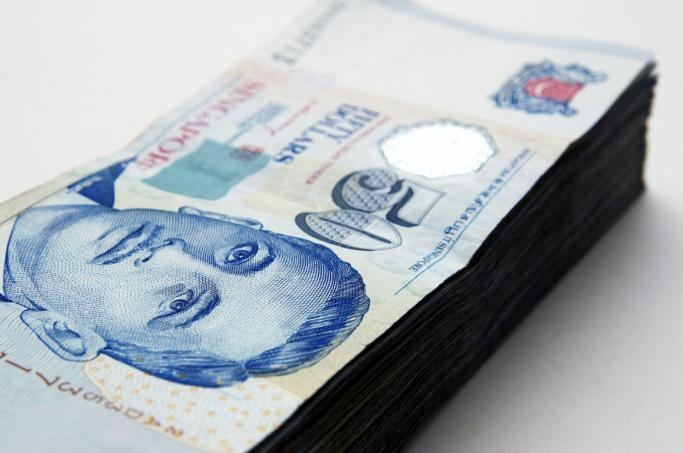
Singapore dollar holds onto gains against the greenback
Positive comments from the ECB have provided ‘a shot in the arm’ to risk currencies, says IG Markets Singapore.
IG Markets Singapore said:
The Singapore dollar has held onto the gains it made against Greenback yesterday.
Positive comments from the ECB have provided a shot in the arm to risk currencies, helping to ease fears the eurozone crisis could turn nasty.
This saw the local currency trade at $1.2471 against the US dollar this morning, as it maintains its status below $1.25 resistance.
With key meeting among the ECB and the Fed in the coming days the currency pair is likely to hold steady until more news emerges from policymakers.
With a boost to Asian currencies from the ECB, there is a history of Europe over-promising but under-delivering.
DBS Group Research meanwhile noted:
The market is starting to worry that it may have been too eager in taking the European Central Bank (ECB) and leaders of large EU nations at face value regarding their readiness to do whatever it takes to defend the euro.
For a start, it is doubtful that the ECB can reactive its Securities Market Program when its monetary policy committee meets this Thursday. To buy Spanish government bonds, the ECB must first receive a formal request from the country via the European Financial Stability Facility (EFSF).
The meeting between US Treasury Secretary Timothy Geithner and German Finance Minister Wolfgang Schaeuble did not offer any fresh insights or new directions towards resolving the Eurozone crisis. In fact, Geithner’s trip to Europe appeared more like a fact finding trip.
Rating agencies did not join in the market in hoping for miracles from the ECB and the leaders of large EU nations. Moody’s did not believe that the ECB alone could resolve the Eurozone crisis other than buying time.
Resolving the crisis still requires EU countries to rein in their budget deficits, stabilize and lower their public debt stock, embark on structural reforms to restore competitiveness and return their economies on a sustainable growth path. Moody’s had, a week ago, downgraded the sovereign debt rating outlooks of three (Germany, Netherlands and Luxembourg) of the four remaining EU countries rated triple-A by all three agencies.
In Germany, this has eroded support for German Chancellor Angela Merkel’s handling of the crisis. Overall, the past week’s events are symptomatic of one reality. The loss of confidence in politicians has led markets to look increasingly to the central banks to underpin the global economy.
























 Advertise
Advertise






